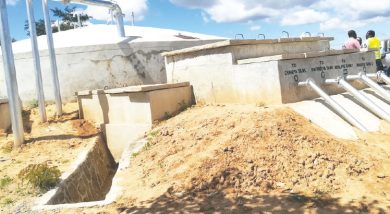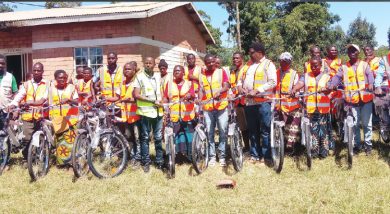Malawi not ready for emerging outbreaks, pandemics—experts
Malawi risks plunging back into a chaotic situation in the wake of outbreaks and pandemics if the health sector remains ill-equipped and under-resourced, experts have warned.
But the Presidential Task Force on Covid-19 and Cholera has allayed such fears on the basis that Malawi has an Emergency Response Plan (ERP) serving as a framework for achieving a resilient public health system to help prevent, prepare and manage public health threats.

The fears raised by experts come against the background of multiple challenges in the health sector, such as high vacancy rate, lack of essential medicines and medical supplies, inadequate funding, lack of beds and space for expansion amid outbreaks such as cholera that has re-emerged and Covid-19.
The vacancy rate in central hospitals is at 56 percent while in district hospitals it is at 55 percent. According to the Parliamentary Committee on Health, K19.5 billion is needed to reduce the vacancy rate.
Health and Rights Education Programme executive director Maziko Matemba in an interview argued that Malawi will always have challenges as regards pandemic and outbreak preparedness as stated by the WHO and African Union (AU) Centre for Diseases Control (CDC).
He cited a WHO and AU CDC scoping mission which came into the country in March 2023 and found Malawi to be lagging on pandemic and outbreak preparedness.
The mission wanted to identify pertinent gaps and help Malawi draw a comprehensive response plan that would cover such gaps.
Matemba said: “In terms of preparedness we were found not to be ready most of the time; hence, the scoping mission which came to support Malawi learnt of gaps in the form of financial and human resources including legislative on who does what in terms of pandemics and outbreaks.”
The health rights activist said Malawi needs to strengthen its healthcare system to ensure that dependence on external stakeholders is minimised, especially in times of health crisis emanating from pandemics and outbreaks.
Similarly, Kamuzu University of Health Sciences (Kuhes) epidemiology professor Adamson Muula told Nation on Sunday in an interview that infectious diseases and pandemic preparedness will always be an important aspect of global and national public health efforts.
He said such an aspect requires a holistic approach such as ensuring relevant and competent health practitioners are available or mobilised at short notice, and availability of basic and sophisticated equipment, which has been a challenge for Malawi.
Muula said: “Since the list of what is needed is long, we could easily believe that Malawi will always be unable to be ready. But we should not take such an approach.
“We should remind ourselves that our lives are the most precious assets we can have and anything else, including politics and wealth, should come second.”
The public health expert stated that while Malawi did reasonably well with Covid-19, it failed dismally when cholera struck.
“And the reason is simple. Covid-19 affected both the rich and the poor, more so it affected the rich more. Cholera on the other hand will always be the disease of the poor. Since we take other people’s lives as not worthy, the dilly-dallying and indecisiveness that characterised the cholera outbreak obviously led to preventable deaths,” argued Muula.
He, however, said establishing the Presidential Task Force on Covid-19 and Cholera from the time Covid-19 was at its peak was a positive step regarding outbreak and pandemic preparation.
Presidential Task Force on Covid-19 and Cholera co-chairperson Dr Wilfred Chalamira Nkhoma argued in a separate interview that the current ERP that covers the period between 2022 and 2024 has identified eight very high, high, moderate and low-risk key hazards targeted for contingency planning.
These include cholera, Covid-19, rabies, measles/rubella, floods, tropical cyclones, Ebola virus disease, typhoid fever, polio, monkeypox and seasonal influenza.
“In addition to the Ministry of Health, the Department of Disaster Management Affairs [Dodma] also regularly develops a National Multihazard Plan that receives inputs from all ministries and departments, effectively serving as a national framework for preparedness, response and rehabilitation,” he said.





